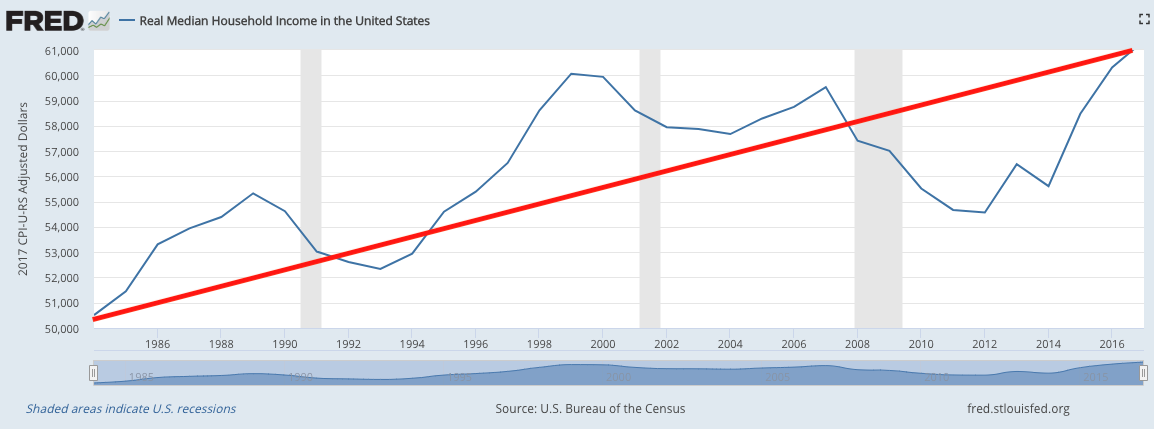At American University on Thursday, Sen. Elizabeth Warren, D-Mass, outlined her foreign policy vision for America. Pursuant to effective foreign policy, it has about as much value and relevance as Warren has Native American blood.
Warren’s plan, obviously intended to boost her presidential credibility, is a hodgepodge of contradiction, ignorance, and weakness.
Let’s start with Warren’s economic foreign policy narrative. It begins with the senator’s not-so-brilliant explanation for why we’re in what she regards as a negative global position: “Beginning in the 1980s, Washington’s focus shifted from policies that benefit everyone to policies that benefit a handful of elites, both here at home and around the world.”
Using Ronald Reagan, not Jimmy Carter, as a starting point for American decline seems very odd. Yet the real oddity of Warren’s claim here is that the 1980s actually marked the beginning of a period that has seen massive improvements in global living standards. Warren turns a blind eye to these improvements and successes.
“For decades, the leaders of both parties preached the gospel that free trade was a rising tide that would lift all boats,” said Warren. “Great rhetoric — except that the trade deals they negotiated mainly lifted the yachts — and threw millions of working Americans overboard to drown. Policymakers were willing to sacrifice American jobs-not their own, of course – in return for boosting sales at Walmart and gaining access to consumer markets around the world.”
Warren sounds a lot like Trump, and she’s just as wrong. Contrary to deceptive Democratic Party talking points, the data shows that real incomes have risen over the past thirty years. Consider the U.S. government chart below (red trend line is my annotation).

Yes, free trade has caused economic dislocation for some Americans. But it has been manifestly beneficial for the vast majority of them. Warren can attack Walmart, but it employs hundreds of thousands of Americans and offers low priced goods to tens of millions more.
And while government should have done more to provide an economic transition for those who have lost jobs to globalization, economic dislocation is the price economic dynamism. Nothing is forever. That which that facilitates new, competitive industries such as the tech sector, and long term economic growth, necessarily destroys old, sclerotic industries and migrates jobs from one part of the economy to the other. Warren’s rhetoric is an endorsement of the lethargic statism and structural economic stagnation of the 1970s.
Warren’s solution to these make-believe ills is similarly silly: a call for stronger unions, a search for monopoly demons where none exist, and the passing of multilateral laws to lock in high taxes.
If Warren wins the Democratic nomination, President Trump should contrast his economically majestic corporate tax cuts with the globally proven failure of Warren’s “soak the successful” narrative.

